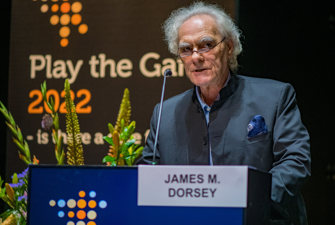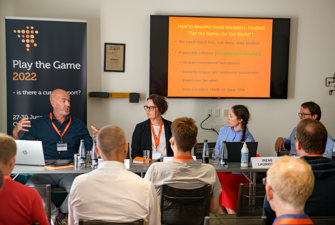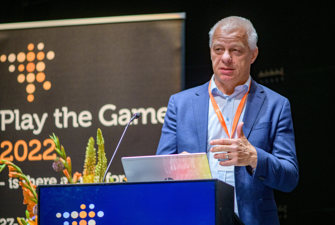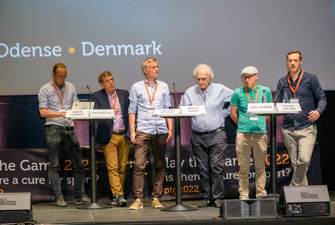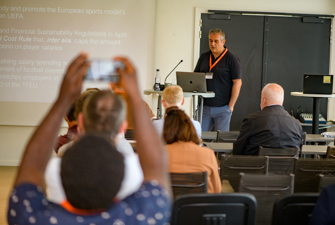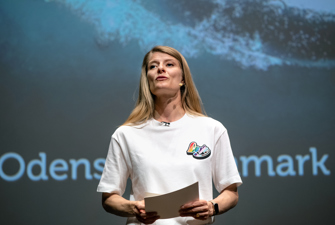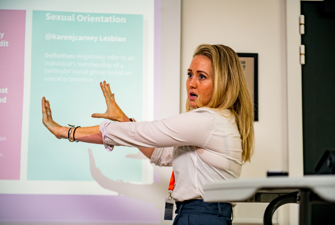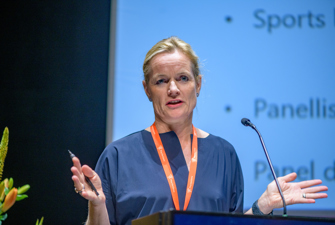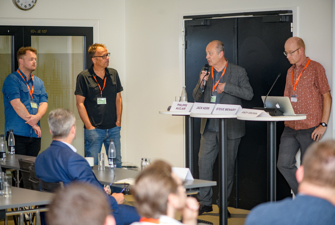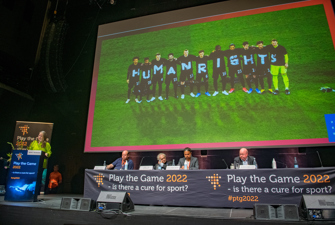Afghanistan’s first female Olympian: IOC is funding the Taliban-controlled NOC in Kabul
The International Olympic Committee recently transferred 56,000 USD to the National Olympic Committee in Afghanistan. Since August 2021, the NOC has been under the control of the Taliban regime that returned to power in the country and declared a full ban on women’s sport.
The new Taliban regime in Afghanistan has held power over the country’s sports sector since August 2021. But even though the regime almost immediately violated the Olympic Charter by declaring a ban on women’s sport, the Taliban-controlled National Olympic Committee of Afghanistan is still funded by money from the IOC’s Olympic Solidarity programme.
According to the former Afghan judoka, Friba Rezayee, the first ever female Olympian from Afghanistan, an email correspondence earlier this year between the IOC and the NOC confirmed the transfer of 56,000 USD from the Olympic Solidarity programme to the Taliban-controlled committee in Kabul. But the money never seemed to reach the Afghan athletes they were meant for.
“I was informed by a friend in Afghanistan that when a member of the NOC arrived at the office in Kabul to pick up the money, the money was already in the hands of the Taliban soldiers guarding the NOC office,” Friba Rezayee told Play the Game during this week’s international conference on democracy, transparency, and freedom of speech in sport.
Thousands of athletes are still hiding
Friba Rezayee fled Afghanistan in 2011. She now lives in Canada where she is the executive director of the organisation Women Leaders of Tomorrow. When the Taliban regime returned to power in Afghanistan, she was one of several individuals who helped female athletes leave the country from their residences abroad or inside Afghanistan.
“I received hundreds of messages from female athletes who feared for their lives. When we reached out to international sports organisations for help, most of them said they couldn’t help us because they are not governments,” the former Afghan judoka said.
“But to me, it only takes motivation and caring to do something for a group of women in great danger who deserves security and safety like all other people. The sports organisations had the resources, the capacity, and the power, but did nothing.”
According to Friba Rezayee, thousands of female athletes are still hiding in Afghanistan. Many have changed identity because they fear being beaten, stoned, or shot to death by the Taliban regime.
After the evacuation of some of the female athletes, who were in the most urgent risk of being punished for playing sports during the two decades that Western politicians with the help from armed forces tried to build democracy in the country, Friba Rezayee and others have called on the IOC to stop funding the Taliban-controlled NOC in Afghanistan.
On 14 December 2021, Friba Rezayee received an email from the IOC explaining how the money from the Olympic Solidarity programme is distributed.
“Please note that we have put in place clear guidelines for the selection process of the beneficiaries of this process, with the vast majority of funds being allocated to athletes (and with female athletes as a priority),” the IOC email said adding:
“The recognised NOC Afghanistan Executive Board will be responsible for coordinating the consolidation of the list of candidates with the respective national federations to ensure a transparent and fair selection process. Once approved by the NOC Afghanistan Executive Board, the list of candidates will be submitted to Olympic Solidarity for approval (in collaboration with our various partners).”
To Friba Rezayee, this email from the IOC confirmed that the leader of the global Olympic movement had no plans of excluding the now Taliban-controlled NOC in Afghanistan from the so-called Olympic family.
“I am not surprised anymore. But I am disappointed and heartbroken. What I would like to see is for the IOC to reach out to women in sport and to not recognise and legitimise the Taliban regime.”
Sports women caught in a double crossfire
At Play the Game’s conference in Odense, Friba Rezayee and three other female athletes took part in a debate on how the sports world failed women athletes in Afghanistan after the return of the Taliban regime.
“The IOC as well as the NOC’s should have done what we did. They were all in Tokyo for the Olympic Games and knew what was going to happen. Why didn’t any of the NOC’s say: Don’t worry. Our doors are open to you,” said Laura Robinson, a Canadian freelance journalist who helped many female athletes escape Afghanistan.
She is still angry and upset over how most sports organisations left the evacuation of the athletes to individuals like herself, Friba Rezayee, the former Olympian Nikki Dryden, and Khalida Popal, who was the first captain of Afghanistan’s national football team for women.
“You intersect a predatory sports culture with a super religious patriarchal culture and the women athletes are caught in a double crossfire. So, how dare they ever call themselves believers in safe sport and equality. They had the chance to prove themselves. It isn’t the hardest thing in the world. If I can do it from my kitchen, then they can too,” Laura Robinson said while also acknowledging that a few good men at FIFA and the UCI were a great help during the evacuation of the Afghan athletes from the airport in Kabul.
“The whole thing was surreal. It was a very urgent matter. Nothing else I have done in my life was more important to me than saving these young women from possible torture and death. Where was basketball? Where was volleyball? And where was the IOC? They failed women terribly.”
Just a normal day at the office for the men’s team
To Khalida Popal, who fled Afghanistan a decade ago and now lives in Denmark, it was no surprise to hear that the IOC is still funding the Taliban-controlled NOC in her former home country.
“It’s the same case with FIFA. The national football federation in Afghanistan is getting the budget. The national football team for men is travelling the world and competes in international tournaments. For them, it’s just a normal day at the office. But there is no single statement from the national football federation or from FIFA on the status of Afghan football for women,” Khalida Popal said.
“Most leaders in sport are only trying to secure their votes and this brotherhood system they have created, especially in football. But we will not let them forget us. We don’t give up.”
Nevertheless, Nikki Dryden, a human rights lawyer and former swimmer who represented Canada at two Olympics, said at the conference that she can no longer afford to work with these cases for free:
“I asked the IOC for help after the evacuations in Afghanistan. They said no.”
A violation of the Olympic Charter and IOC’s Agenda 2020
But the four women, who helped hundreds of athletes escape the Taliban regime and now feel betrayed by the sports world they are all a part of, are supported by Human Rights Watch who will try and hold the IOC accountable.
“The previous Taliban regime was banned from participating in the Olympics for not allowing women to play sports, which is a violation of the Olympic Charter, and for executing people in stadiums. And there is every reason to ban the current Taliban-run National Olympic Committee in Afghanistan,” Minky Worden, Director of Global Initiatives at Human Rights Watch, said after the debate.
“Because they are in full violation of the Olympic Charter, which requires non-discrimination, and because they are in full violation of the Olympic Agenda 2020, which calls for gender equality as one of the main goals of the IOC.”
Minky Worden expects the IOC to ban the Taliban controlled NOC in Afghanistan at the committee’s next executive board meeting in September.
